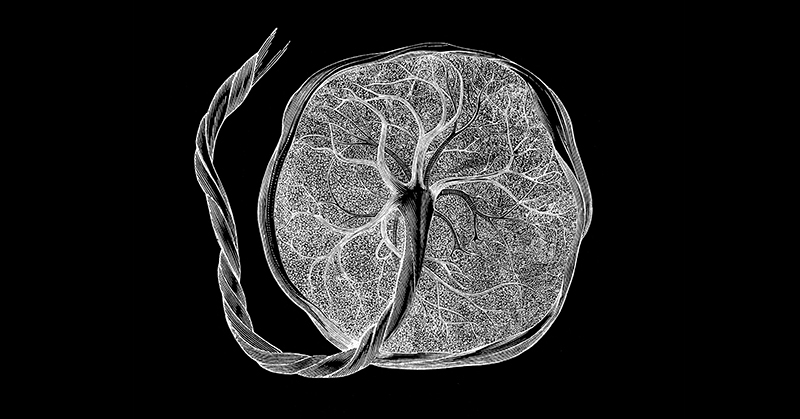Therapy produces growth factor that restores fetal weight without negative side effects

An experimental gene therapy that boosts production of a growth factor in the placenta restores fetal weight in a guinea pig model of fetal growth restriction—a pregnancy complication that can lead to preterm birth and stillbirth. The study, funded by NIH’s Eunice Kennedy Shriver National Institute of Child Health and Human Development (NICHD), provides a potential way to treat the condition during the latter half of pregnancy. The work is led by Helen N. Jones, Ph.D., at the University of Florida, and is part of NICHD’s Human Placenta Project.
Background
Fetal growth restriction is a pregnancy complication that occurs when a fetus is too small. The condition is a risk factor for preterm birth and stillbirth. Furthermore, newborns who are underweight are at risk for long-term health problems, such as developmental delays and heart disease. One cause of fetal growth restriction is a problem in the placenta called placental insufficiency. This occurs when the placenta fails to provide enough oxygen and nutrients to the developing fetus. Currently, there is no treatment for this complication, and oftentimes, infants are delivered early and must remain in the hospital’s neonatal intensive care unit, or NICU, for extended care.
Results
In a recent study, researchers tested gene therapy in a guinea pig model of fetal growth restriction caused by placental insufficiency. The therapy contains DNA-based instructions for insulin-like 1 growth factor (IGF1)—a major regulator of placental development and function. Earlier work suggests that IGF1 could potentially alleviate growth complications.
In the study, IGF1 gene therapy was given throughout the second half of pregnancy after the occurrence of fetal growth restriction. The study team found that IGF1 gene therapy boosted production of IGF1 levels in the placenta, which increased the production of blood vessels in the placenta and reversed fetal growth restriction. Treatment with IGF1 gene therapy also lowered fetal levels of cortisol, a hormone that is elevated by stress. Overall, the researchers did not observe negative side effects in the fetus or mother.
Significance
The findings add to previous work showing that IGF1 gene therapy is a promising treatment for fetal growth restriction caused by placental insufficiency. However, more work is needed before IGF1 can be tested in people.
“This is a very exciting therapy," said Dr. Jones. "We're very happy with our results so far. It has the potential to prevent so many premature births and give families hope that placental failure is not the early end of a pregnancy.”
Reference
Davenport BN, Wilson RL, Williams AA, and Jones HN. Placental nanoparticle-mediated IGF1 gene therapy corrects fetal growth restriction in a guinea pig model. Gene Therapy DOI: 10.1038/s41434-024-00508-3 (2024)

 BACK TO TOP
BACK TO TOP